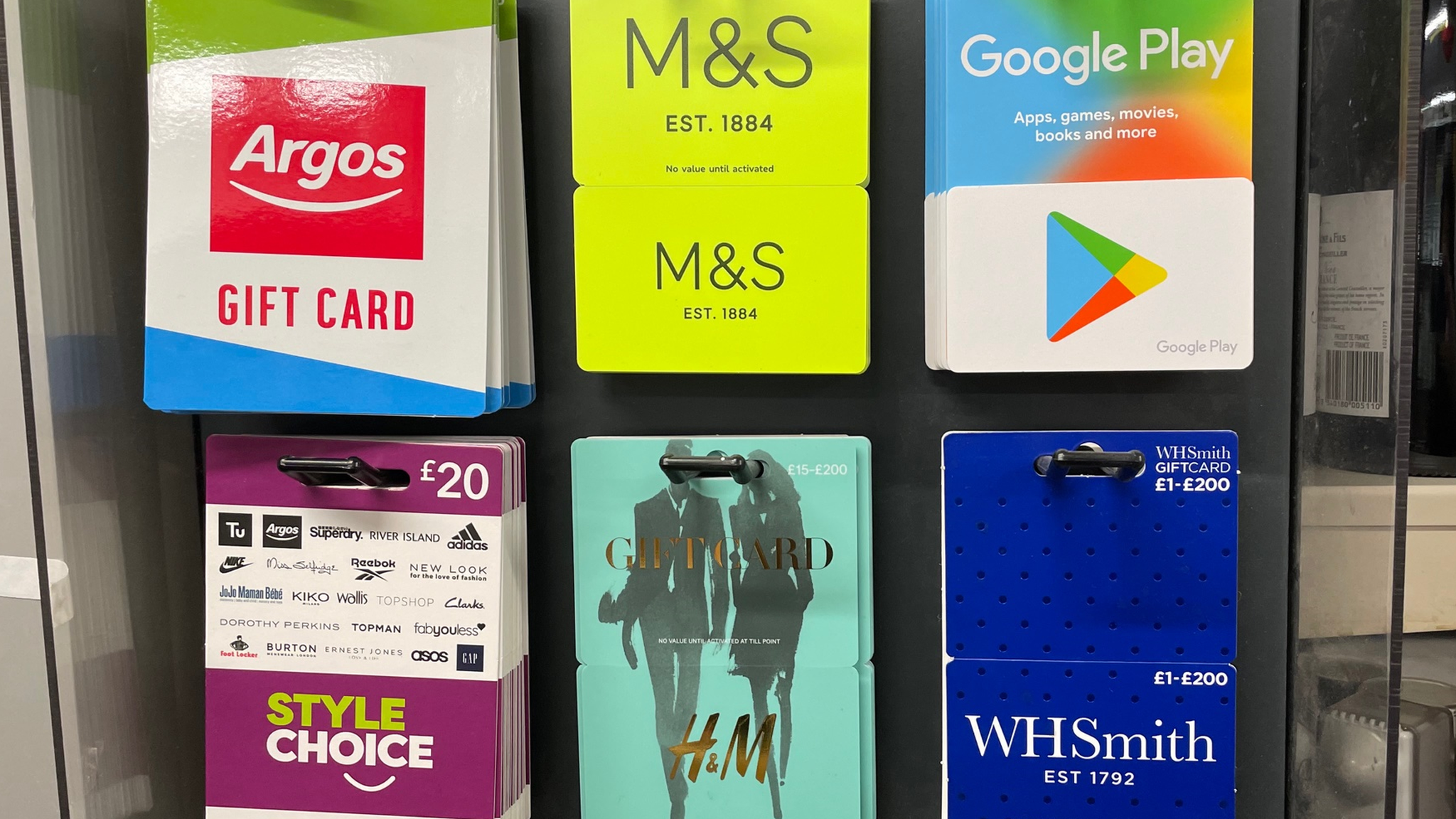Christmas dinner: Go green with a nut roast with family on Skype
- Published
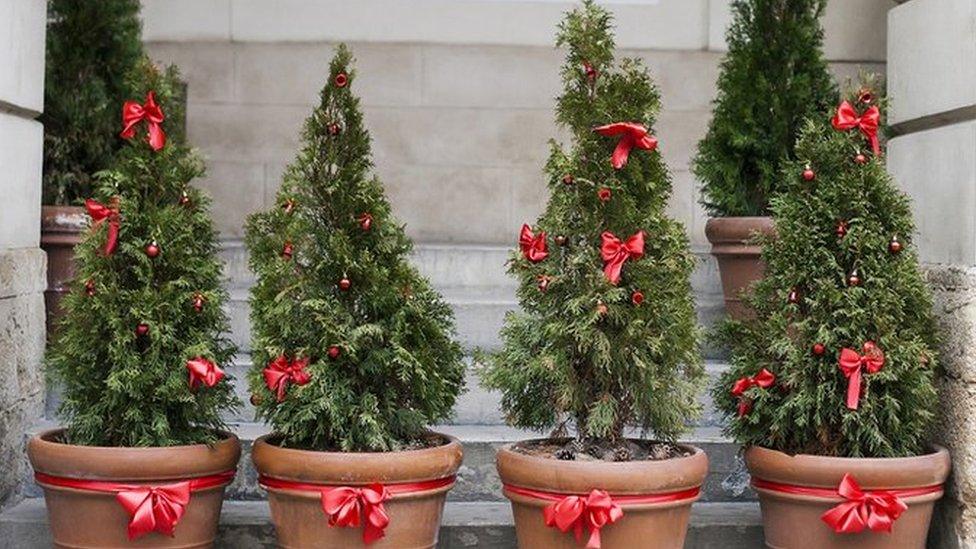
From reusable Christmas trees to reducing the carbon footprint of your Christmas dinner, here's how to make sure all your Christmases be green.
Research shows a typical turkey roast, external with the trimmings for a family of six emits as much carbon dioxide as driving 78.5 miles in an average UK petrol car.
About eight million Christmas trees are bought every December in the UK, which is a lot of production and waste.
Experts also recommend car-sharing when driving home Christmas to cut CO2.
While Bing Crosby dreamt of a White Christmas, green living expert Adrian Ramsay is dreaming of a green one.
"In the grand scheme of things, one Christmas tree is only a small part of our carbon footprint but it all adds up," said the chief executive of The Centre for Alternative Technology.
"Going vegan or cutting down on meat and dairy, avoiding flying, and generally buying less stuff are all things we can do all year round, not just for Christmas."
Reducing 'love miles'
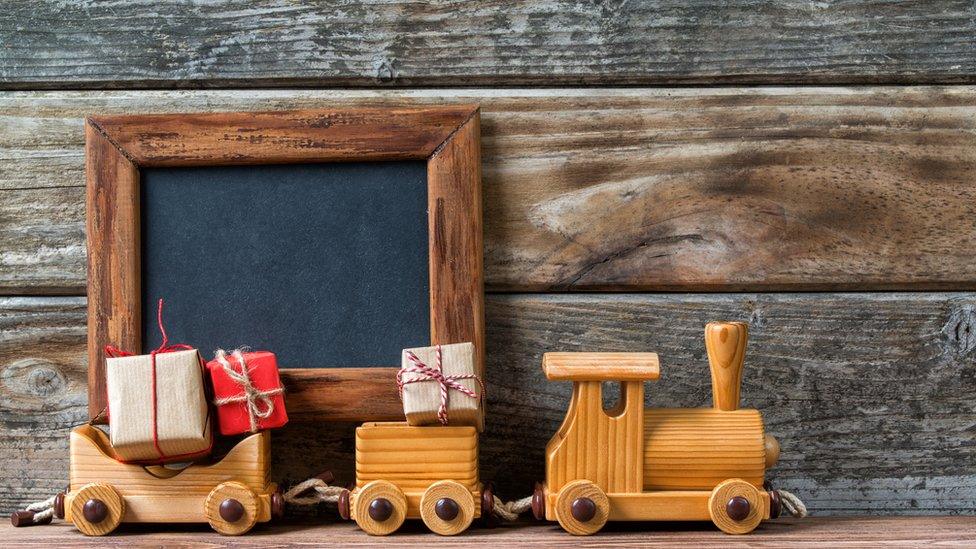
Travelling to see friends or relatives produces emissions, but as ever less is best. "So if you can avoid flying, take the train or car share," Adrian advised.
"We even know of people who have their Christmas dinner via skype to avoid flying. The added benefit that you can switch off your relatives when you've had enough."
Christmas trees
What's your Christmas tree's carbon footprint and should you go fake or fir?
Fake or real? For those still deciding, it depends.
"A real tree has helped absorb carbon as it has grown, but if it is left to rot in landfill it releases methane, which is a powerful greenhouse gas," said Adrian.
"If you burn it or have it chipped for use in the garden the impacts will be lower. Artificial trees can have lower emissions than real trees if they are used for five and 10 years. However it is plastic. Try getting one second-hand, and keep using it.
"If you have space the best option can be a real tree still in its pot and keeping it outside so it can be re-used."
The Christmas trees being made into compost
When it comes to decorations, the centre in Machynlleth promotes ones made from natural materials such as wood or pine cones and recommends low-energy lights.
'Buy less stuff'

For anyone who loves topping up the pile of presents under the tree, this could be a hard one to swallow.
"No one wants to look like Scrooge, but we have to buy less stuff," said Adrian.
"Think about the impacts of, for example electronic goods, both in terms of the energy it takes to make and ship them and the electricity they will use."
He suggested setting a family Secret Santa with a price limit. If this was too much of a psychological leap for binge-buyers, Adrian recommended shopping for locally made or second hand goods, made from recycled or sustainable materials, and not encased in unnecessary packaging.
"Choose gifts of time or experience, rather than stuff," added Adrian.
Lose the wrapping paper
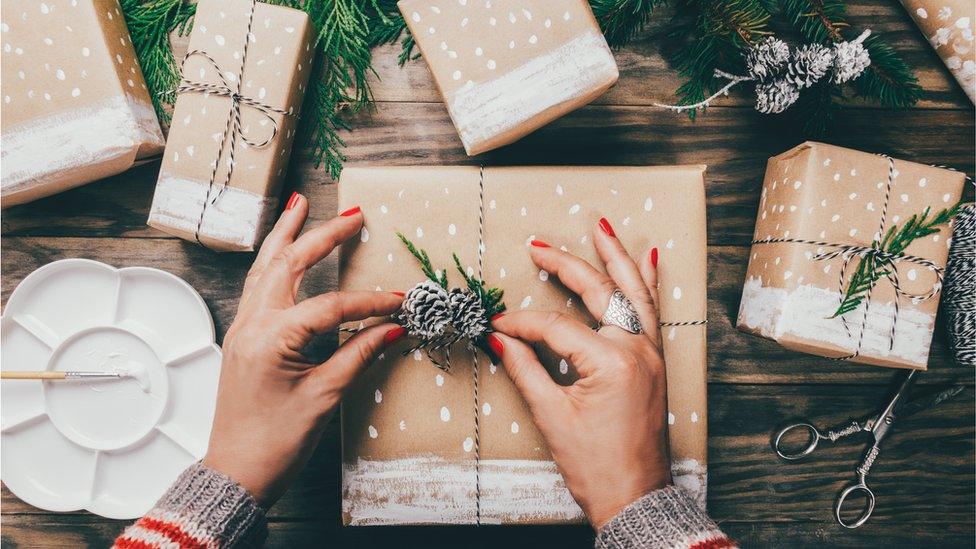
If your heart sinks as you stuff piles of non-recyclable wrapping paper into black bags, there are other options.
"Try recyclable brown paper you decorate yourself, or festive material you can reuse in years to come."
Did someone mention old newspaper?!
Swap turkey for nut roast
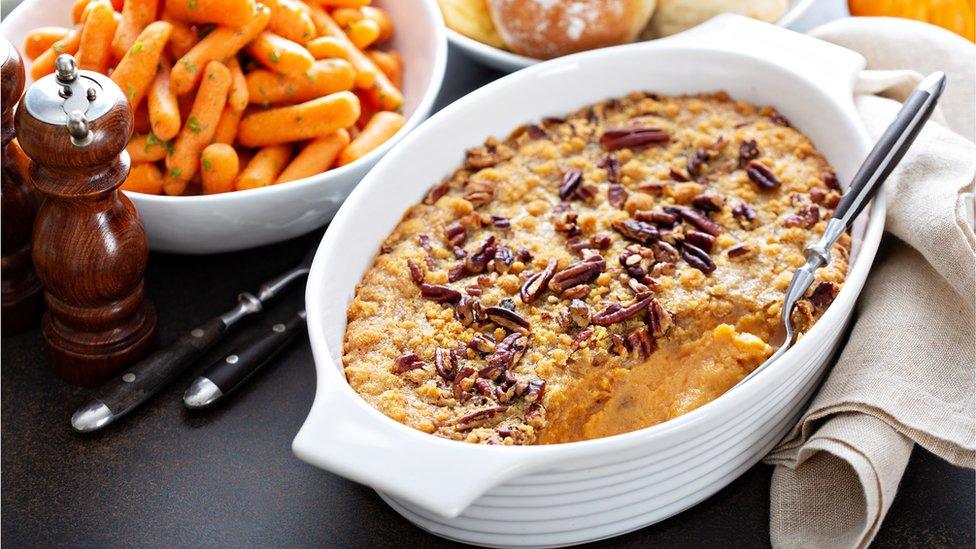
"Turkey isn't the worst meat in terms of greenhouse gas emissions - beef and lamb are worse - but it's still likely to account for more than half of the emissions on your Christmas plate," Adrian said.
"Choosing a veggie option, or at least saving meat just for Christmas Day over the festive period, will reduce your impact on the environment."
Eat local vegetables
Potatoes, parsnips and sprouts are in season at Christmas, meaning you can buy UK-grown produce that has not travelled as far.
Eating locally grown seasonal food cuts down on food miles. The advice from Adrian is whatever you decide to eat, think carefully about how much you need and what you do with the leftovers.
"Wasting food wastes land, water and energy," he said.
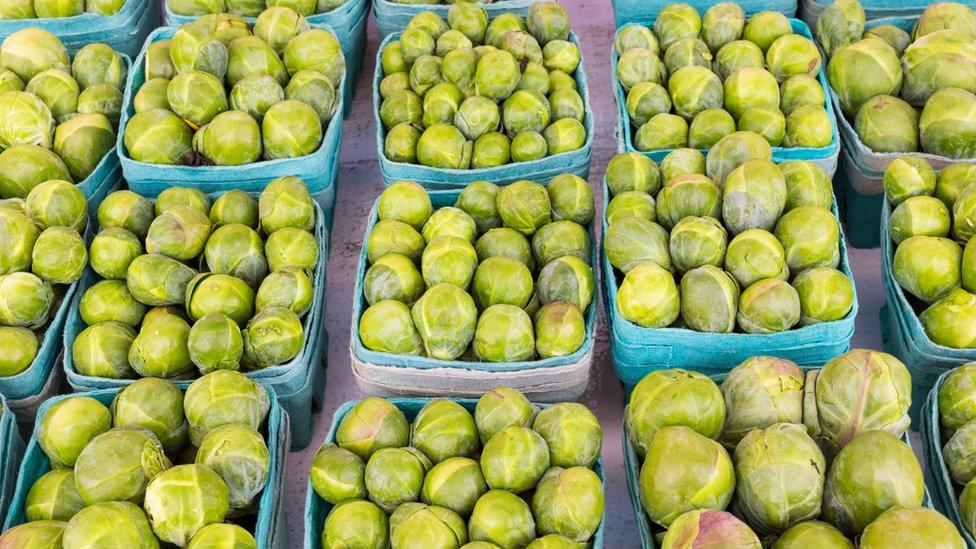
- Published18 December 2018

- Published20 December 2022
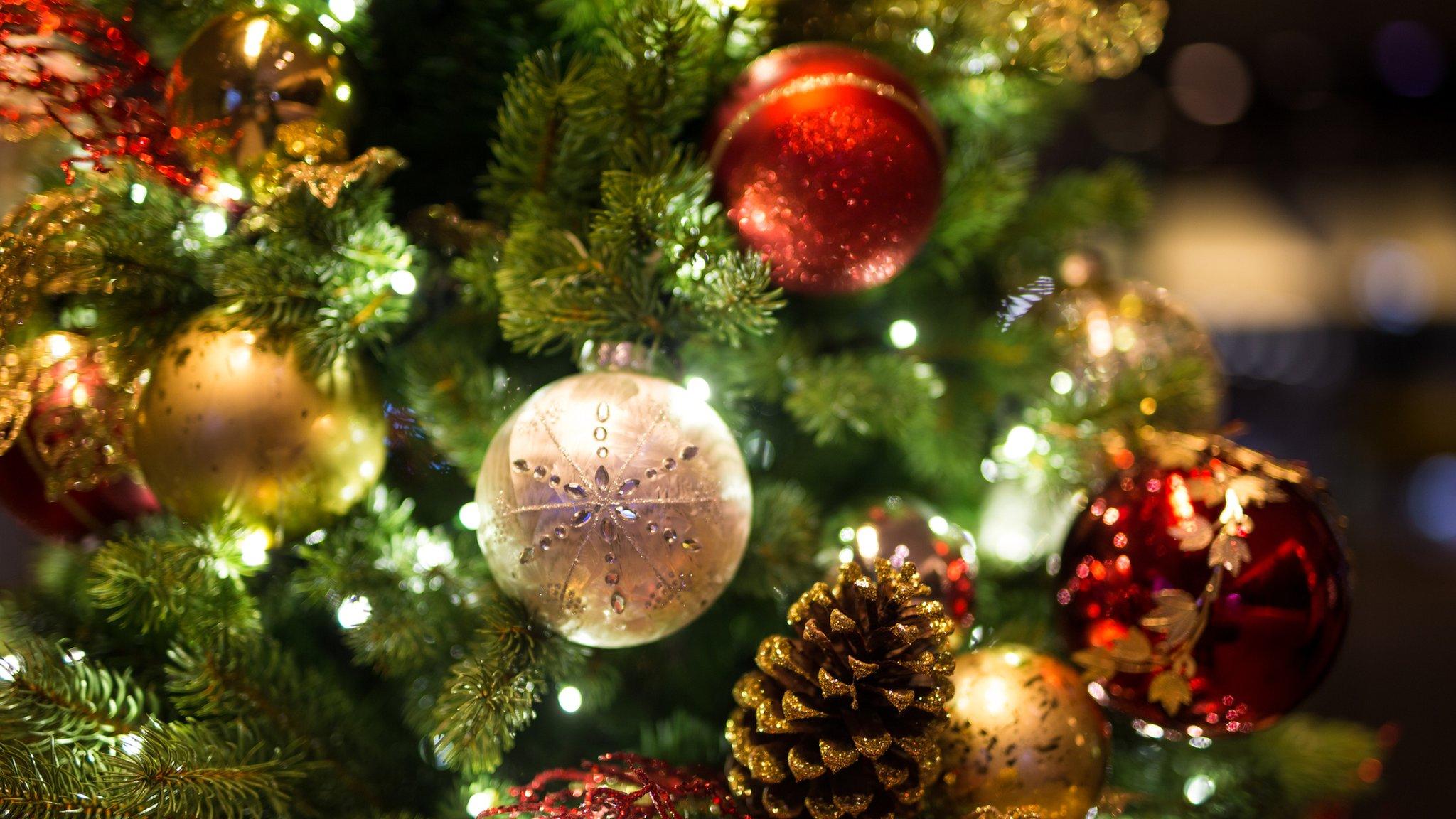
- Published4 December 2020
